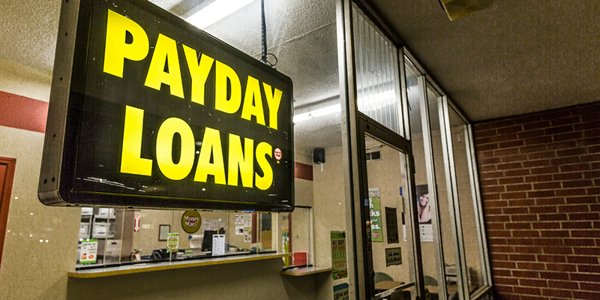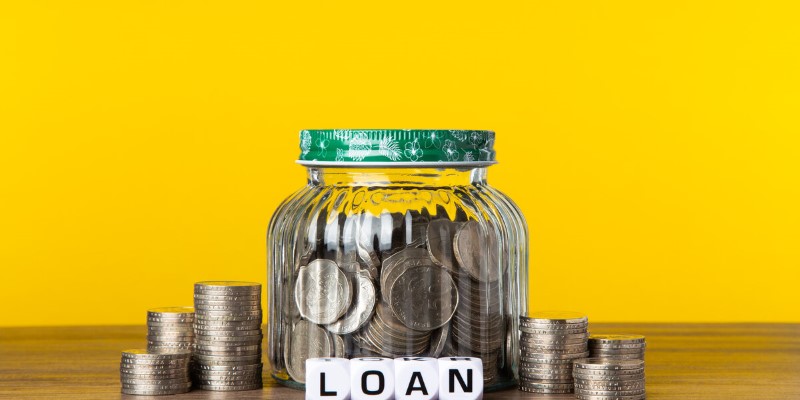Need cash fast but worried about your credit score? No-credit-check loans are the perfect solution. These loans promise quick approval without the hassle of a credit check, making them tempting for those with bad credit or no credit history. But are they as good as they sound?
Before you apply, you need to understand the whole picture. Are these loans beneficial, or do they come with hidden risks? Let's break down everything you need about no-credit-check loans—the good, the bad, and the ugly. The pitfalls can help you make a wiser financial decision and avoid debt traps.
What Are No-Credit-Check Loans?
As the name suggests, no-credit-check loans are loans where lenders do not review your credit history during approval. Unlike traditional lenders that assess your credit score to determine your reliability, these lenders base their decision on other factors, such as:
• Your income level
• Employment status
• Existing debts
• Ability to repay
These loans are often advertised as quick and easy financial solutions, making them attractive to those denied traditional loans. However, they typically come with higher risks and costs.
Why Do People Choose No-Credit-Check Loans?
There are many reasons why people turn to no-credit-check loans, including:
Bad Or No Credit History
Traditional banks may reject your loan application if you've struggled with late payments, defaults, or bankruptcy. A no-credit-check loan provides an alternative when other lenders say no.
Urgent Financial Needs
Emergencies don't wait. Whether it's an unexpected medical bill, urgent car repairs, or rent due tomorrow, these loans provide quick access to cash—sometimes within hours.
Simple And Fast Approval
Traditional loans require extensive paperwork, credit checks, and a long waiting period. On the other hand, no-credit-check loans often have minimal requirements and can be approved in minutes.
The Dark Side Of No-Credit-Check Loans
While these loans may seem convenient, they have significant drawbacks that can trap borrowers in financial trouble. Here's what you need to watch out for:
Extremely High Interest Rates
Many no-credit-check loans charge sky-high interest rates, sometimes exceeding 400% APR. This makes repayment difficult, causing borrowers to fall into a cycle of debt.
Short Repayment Terms
Most no-credit-check loans require repayment within a few weeks or months. If you don’t have the funds by the due date, you may need to roll over the loan—leading to even higher costs.
Hidden Fees And Penalties
Late fees, processing fees, and loan renewal charges can add up quickly. Some lenders even impose penalties if you try to repay early. Always read the fine print before accepting a loan.
Risk Of Scams And Predatory Lending
Because these loans are often offered online and by non-traditional lenders, scammers target desperate borrowers. Some lenders may use deceptive terms, charge excessive fees, or even steal personal information.
Types Of No-Credit-Check Loans
Not all no-credit-check loans are the same. Some may be more manageable than others, depending on your financial situation. Let’s look at the most common types:

1. Payday Loans
How They Work
Small loans (typically $100–$1,500) that your next paycheck must repay.
Pros
Fast cash with minimal requirements.
Cons
Extremely high interest rates, short repayment periods, and a high risk of falling into a debt cycle.
2. Title Loans
How They Work
You use your car as collateral to secure the loan. If you fail to repay, the lender can repossess your vehicle.
Pros
More significant loan amounts compared to payday loans.
Cons
Risk of losing your car, high interest rates, and short repayment terms.
3. Installment Loans
How They Work
Loans are repaid in fixed monthly payments over several months or years.
Pros
Longer repayment terms than payday loans.
Cons
It is still expensive, with high interest rates and fees.
4. Pawnshop Loans
How They Work
You give a valuable item (jewellery, electronics, etc.) to a pawnshop in exchange for a loan. If you don't repay, the shop keeps your item.
Pros
There is no risk of debt collection or credit damage.
Cons
You could lose your valuable possessions if you can't repay them.
How To Avoid The No-Credit-Check Loan Trap
If you’re considering a no-credit-check loan, be careful. Here are some safer alternatives and tips to protect yourself:

1. Explore Other Loan Options
Before turning to no-credit-check loans, consider:
• Credit unions: They often offer small, lower-interest loans to members.
• Personal loans from online lenders: Some lenders accept low-credit applicants at better rates.
• Family or friends: Borrowing from loved ones can be an interest-free option.
2. Improve Your Credit Score
While it won’t help in an emergency, working on your credit can give you access to better loans in the future. Pay your bills on time, reduce debts, and check your credit report for errors.
3. Look For Employer Or Community Assistance
Some employers offer paycheck advances, and local charities or churches may help with emergency expenses.
4. Compare Lenders Carefully
If you must get a no-credit-check loan, don’t go with the first lender you find. Compare rates, terms, and reviews to avoid scams.
Are No-Credit-Check Loans Ever A Good Idea?
In rare cases, no-credit-check loans may be helpful—but only if:
• You fully understand the repayment terms.
• You have a solid plan to repay on time.
• The loan will genuinely solve your financial issue without making things worse.
However, they should always be your last resort. The risks far outweigh the benefits for most borrowers.
The Bottom Line
No-credit-check loans might seem like an easy fix, but they come with high costs and risks. Before taking one out, consider all alternatives and ensure you can handle the repayment. The last thing you want is to trade a short-term solution for long-term financial struggles.
If you're struggling financially, step back and explore options without drowning you in debt. Patience and research can save you from a costly mistake and set you on proper financial stability. Building an emergency fund and seeking financial guidance can help avoid risky loans and create a more secure future.


